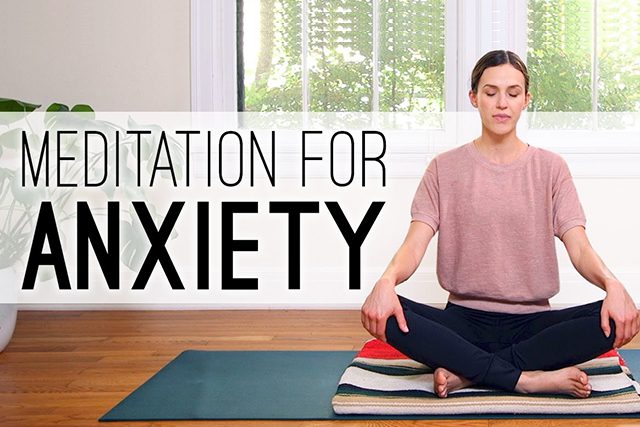Research conducted over a decade ago showed that meditation reduces anxiety and stress, with potentially life-altering effects. Prolonged anxiety has been linked to depression, poor digestion, an increased risk of heart attacks, and a weakened immune system, and it can affect your entire body.
Here is how you can use meditation to reduce anxiety and move closer to better health and well-being.
- Simple breathing exercises to combat panic attacks
Panic attacks can be terrifying. Shaking, sweating, nausea, extreme dread, a racing heart, and even chest discomfort are possible symptoms. However, simple meditation practices can help you deal with a severe anxiety attack.
Start by removing yourself as much as you can from the unpleasant circumstance. Next, work on slow, deep breathing. Guy Joseph Ale, the founder of Lifespan Seminar, suggests a straightforward breathing technique to assist you in controlling stress. You could discover that a relaxing mantra helps you focus and regulates how long you hold each breath.
- Self-guided meditation to reduce anxiety
Even if you don’t experience panic attacks, anxiety can still have negative physical and emotional impacts. In fact, may feel “stressed out.” These things are particularly harmful because the harm to your body continues to exist and has even developed into a chronic condition.
- Find quiet time alone
Give yourself some self-time. Whether it is an hour or 15 minutes, make the most of it! Shut off your phone and block out all outside noise. Consider playing calming music at a low volume if outside noises like traffic distract you.
- Make yourself comfortable
Lying down may seem relaxing, and you might benefit from sleep. But learning how to be mindful and control your tension while awake is also an element of practicing meditation to lower anxiety. A cozy chair, pillows for the floor or to use as bedposts, or a meditation pillow can all be beneficial.
- Relax with measured breathing
To calm your entire body, you can take slow and measured breaths can help. Just inhale from your nose slowly and deeply, then hold your breath for a moment and exhale through pursed lips. You can adjust your breathing pattern until that sensation reduces. Practice to breath from your lower chest and belly, also known as diaphragmatic breathing.
- Consider using visualization techniques
You might discover that within a few seconds, ideas like goals, outcomes, and other things start to cross your mind. If you wish to get rid of them, visualizing can help. Whatever relaxes you, imagine it. Imagine a serene lake, forest retreat, or ocean with waves that move in sync with your breath. Such images not only assist in reducing anxiety, but they also help you forget about your troubles.







